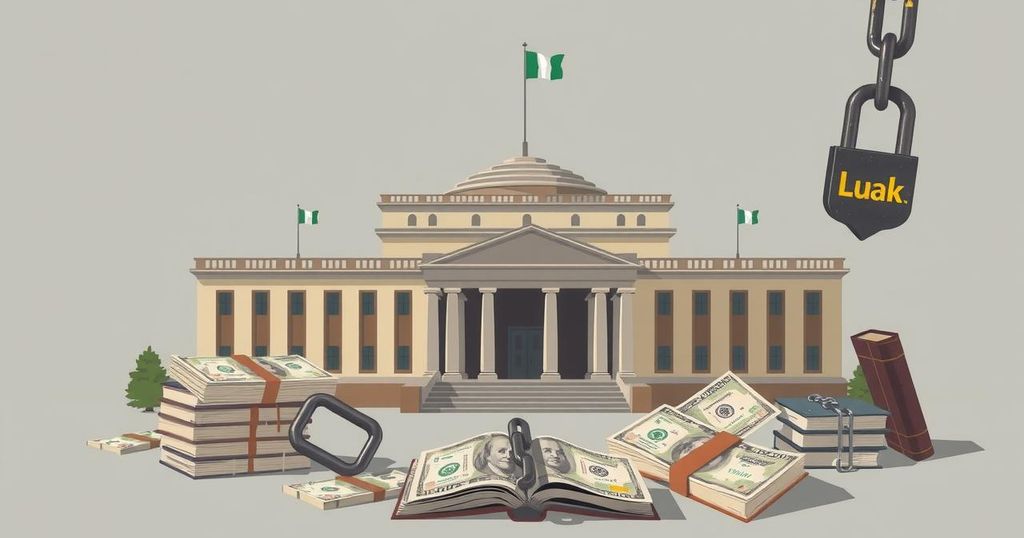The Nigerian House of Representatives has proposed banning pornography amid ongoing economic challenges, leading to public outrage. Citizens express their discontent over the focus on censorship while pressing issues like rising living costs and insecurity remain unaddressed. Lawmakers advocate the ban as a means of protecting moral values, but many view it as a misallocation of priorities.
The recent move by the Nigerian House of Representatives to prioritize a ban on pornography has sparked widespread criticism among citizens. Many Nigerians are grappling with pressing issues such as rising food prices, job losses, and increased tariffs, yet the lawmakers deem regulating pornographic content a crucial focus. This initiative was proposed by Dalhatu Tafoki, representative for Faskari/Kankara/Sabuwa, who argues that banning pornography is essential for protecting the nation’s moral compass.
The legislative body believes that outlawing pornographic material can mitigate marital issues, promiscuity, and unrealistic sexual expectations, contributing positively to the cultural fabric of Nigeria. However, the public reaction has been predominantly negative, as citizens express their disbelief that such a ban is being prioritized amid critical economic hardships.
Prominent social media users, like Sunday Osuyak and Stanley Okpala, have criticized the legislature for neglecting more pertinent societal concerns. Osuyak pointedly remarked that pornography did not rank among Nigeria’s primary challenges, while Okpala added that legislative efforts should instead focus on significant economic issues affecting the populace.
Further frustration arose from citizens, including Oge Eze and online influencer Martina Vincent Otse, who emphasized that lawmakers appear disconnected from the everyday struggles of Nigerians, such as the rising costs of data and essential services. Eze questioned the lawmakers’ priorities and Otse criticized their focus on censorship rather than addressing inflation and living expenses.
Despite public discontent, the House of Representatives insists on pursuing this legislative agenda by invoking global precedents set in various regions that have enacted similar bans. Lawmakers voiced concerns regarding the negative implications of pornography on family relationships and social behavior. Thus, they have requested the Nigerian Communications Commission to enforce this ban through appropriate legal measures against ISPs that fail to comply.
In conclusion, the initiative by the House of Representatives to prioritize a ban on pornography has faced widespread backlash from Nigerians. Many citizens argue that pressing economic issues such as inflation, insecurity, and job creation should take precedence over censorship legislation. As public sentiment continues to highlight the disconnect between lawmakers’ priorities and the everyday struggles of citizens, it is essential for government officials to address the real challenges facing the Nigerian populace to effect meaningful change.
Original Source: businessday.ng






